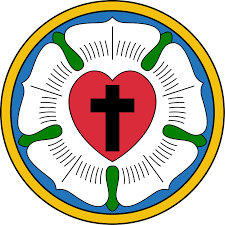Stamp with Collectible Margin: Johann Hinrich Wichern (1808-1881) (Germany, Federal Republic 1949)
Johann Hinrich Wichern (1808-1881) (Germany, Federal Republic 1949)
14 December (Germany, Federal Republic ) within release Welfare: Helpers of Mankind 1949 goes into circulation Stamp with Collectible Margin Johann Hinrich Wichern (1808-1881) face value 30+15 German pfennig
| Stamp with Collectible Margin Johann Hinrich Wichern (1808-1881) in catalogues | |
|---|---|
| Colnect codes: | Col: DE 1949.12.14-04b |
Stamp with Collectible Margin is square format.
Upper margin with summed column value, margin perforated. Footnoted in: MichelAlso in the issue Welfare: Helpers of Mankind 1949:
- Full Pane - Elisabeth von Thüringen (1207-1231) face value 50*(8+2);
- Stamp with Attached Label - Elisabeth von Thüringen (1207-1231) face value 8+2;
- Stamp with Attached Label - Elisabeth von Thüringen (1207-1231) face value 8+2;
- Full Pane - Friedrich Fröbel (1782-1852) face value 50*(20+10);
- Stamp with Collectible Margin - Friedrich Fröbel (1782-1852) face value 20+10;
- Stamp with Collectible Margin - Friedrich Fröbel (1782-1852) face value 20+10;
- Stamp with Collectible Margin - Johann Hinrich Wichern (1808-1881) face value 30+15;
- Stamp with Collectible Margin - Johann Hinrich Wichern (1808-1881) face value 30+15;
- Full Pane - Johann Hinrich Wichern (1808-1881) face value 50*(30+15);
- Stamp with Attached Label - Paracelsus von Hohenheim (1493-1541) face value 10+5;
- Stamp with Attached Label - Paracelsus von Hohenheim (1493-1541) face value 10+55;
- Full Pane - Paracelsus von Hohenheim (1493-1541) face value 50*(10+5);
Stamp with Collectible Margin Johann Hinrich Wichern (1808-1881) it reflects the thematic directions:
Famous People refers to the fame and public attention accorded by the mass media to individuals or groups or, occasionally, animals, but is usually applied to the persons or groups of people (celebrity couples, families, etc.) themselves who receive such a status of fame and attention. Celebrity status is often associated with wealth (commonly referred to as fame and fortune), while fame often provides opportunities to make money.
Lutheranism is a major branch of Protestantism that identifies primarily with the theology of Martin Luther, the 16th-century German monk and reformer whose efforts to reform the theology and practices of the Catholic Church launched the Reformation in 1517.Lutheranism subsequently became the state religion of many parts of Northern Europe, starting with Prussia in 1525.
A man is an adult male human. Prior to adulthood, a male human is referred to as a boy (a male child or adolescent).
Religion is any cultural system of designated behaviors and practices, world views, texts, sanctified places, ethics, or organizations, that relate humanity to the supernatural or transcendental. Religions relate humanity to what anthropologist Clifford Geertz has referred to as a cosmic "order of existence". Different religions may or may not contain various elements ranging from the "divine", "sacred things", "faith", a "supernatural being or supernatural beings" or "some sort of ultimacy and transcendence that will provide norms and power for the rest of life". Religious practices may include rituals, sermons, commemoration or veneration (of deities), sacrifices, festivals, feasts, trances, initiations, funerary services, matrimonial services, meditation, prayer, music, art, dance, public service, or other aspects of human culture. Religions have sacred histories and narratives, which may be preserved in sacred scriptures, and symbols and holy places, that aim mostly to give a meaning to life. Religions may contain symbolic stories, which are sometimes said by followers to be true, that have the side purpose of explaining the origin of life, the Universe and other things. Traditionally, faith, in addition to reason, has been considered a source of religious beliefs. There are an estimated 10,000 distinct religions worldwide. About 84% of the world's population is affiliated with one of the five largest religions, namely Christianity, Islam, Hinduism, Buddhism or forms of folk religion.
Theology is the study of religious belief from a religious perspective, with a focus on the nature of divinity. It is taught as an academic discipline, typically in universities and seminaries. It occupies itself with the unique content of analyzing the supernatural, but also deals with religious epistemology, asks and seeks to answer the question of revelation. Revelation pertains to the acceptance of God, gods, or deities, as not only transcendent or above the natural world, but also willing and able to interact with the natural world and to reveal themselves to humankind.





